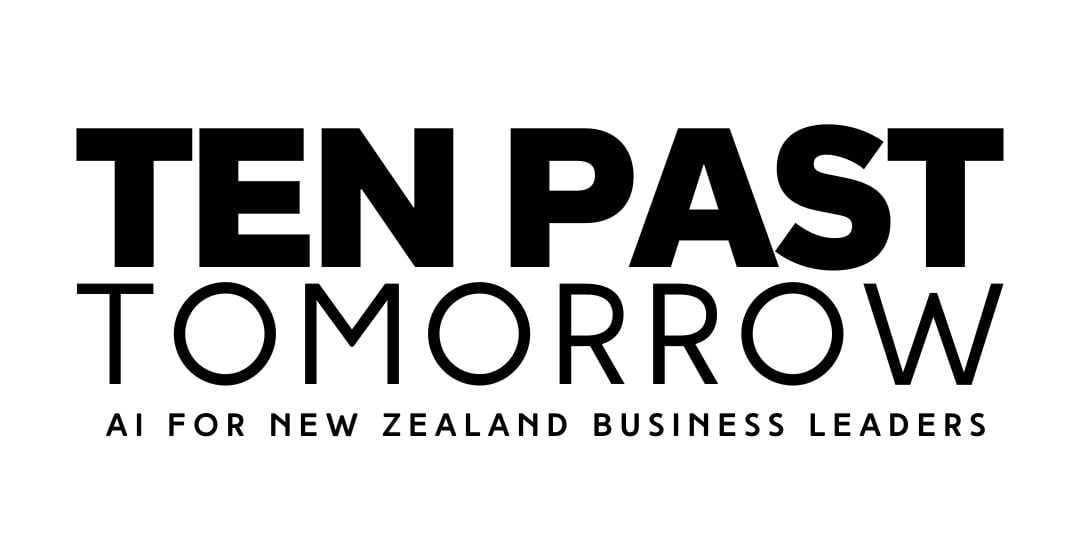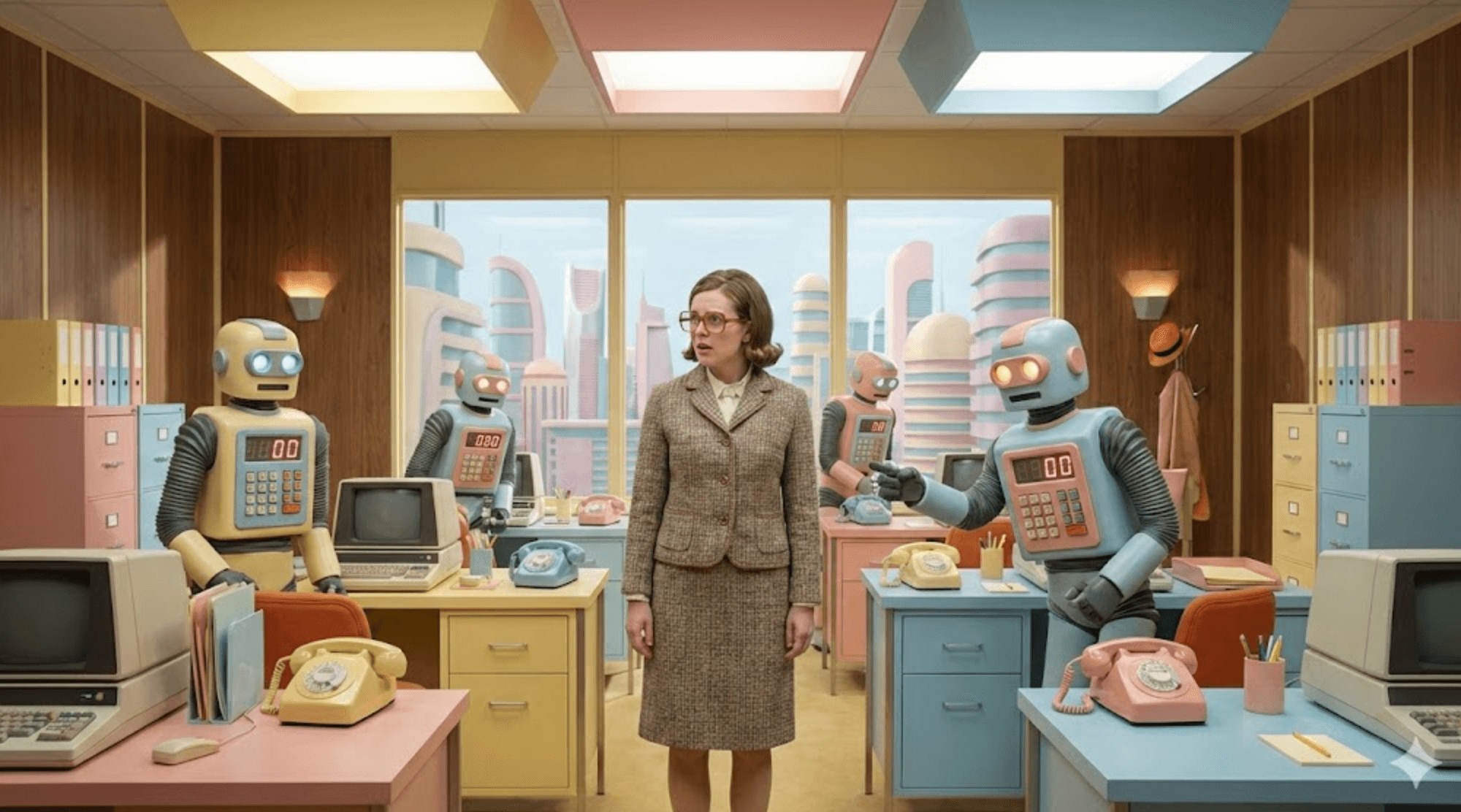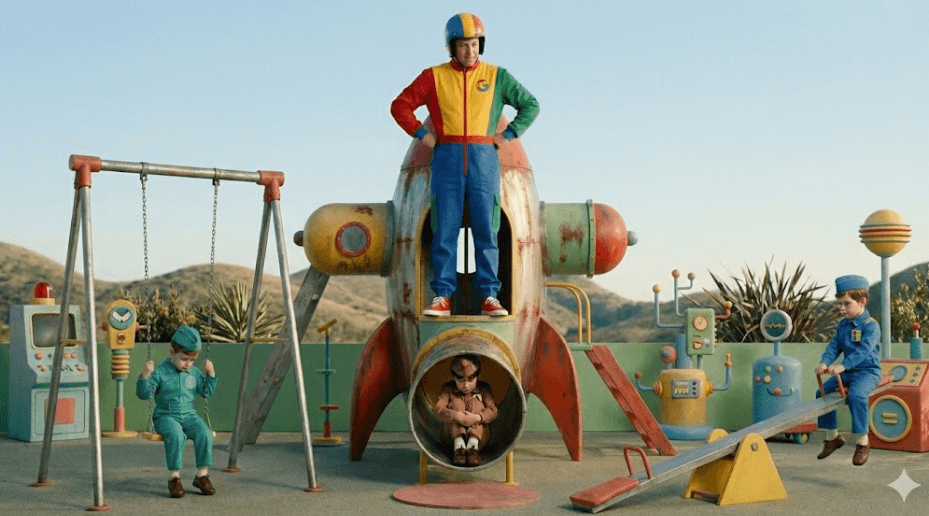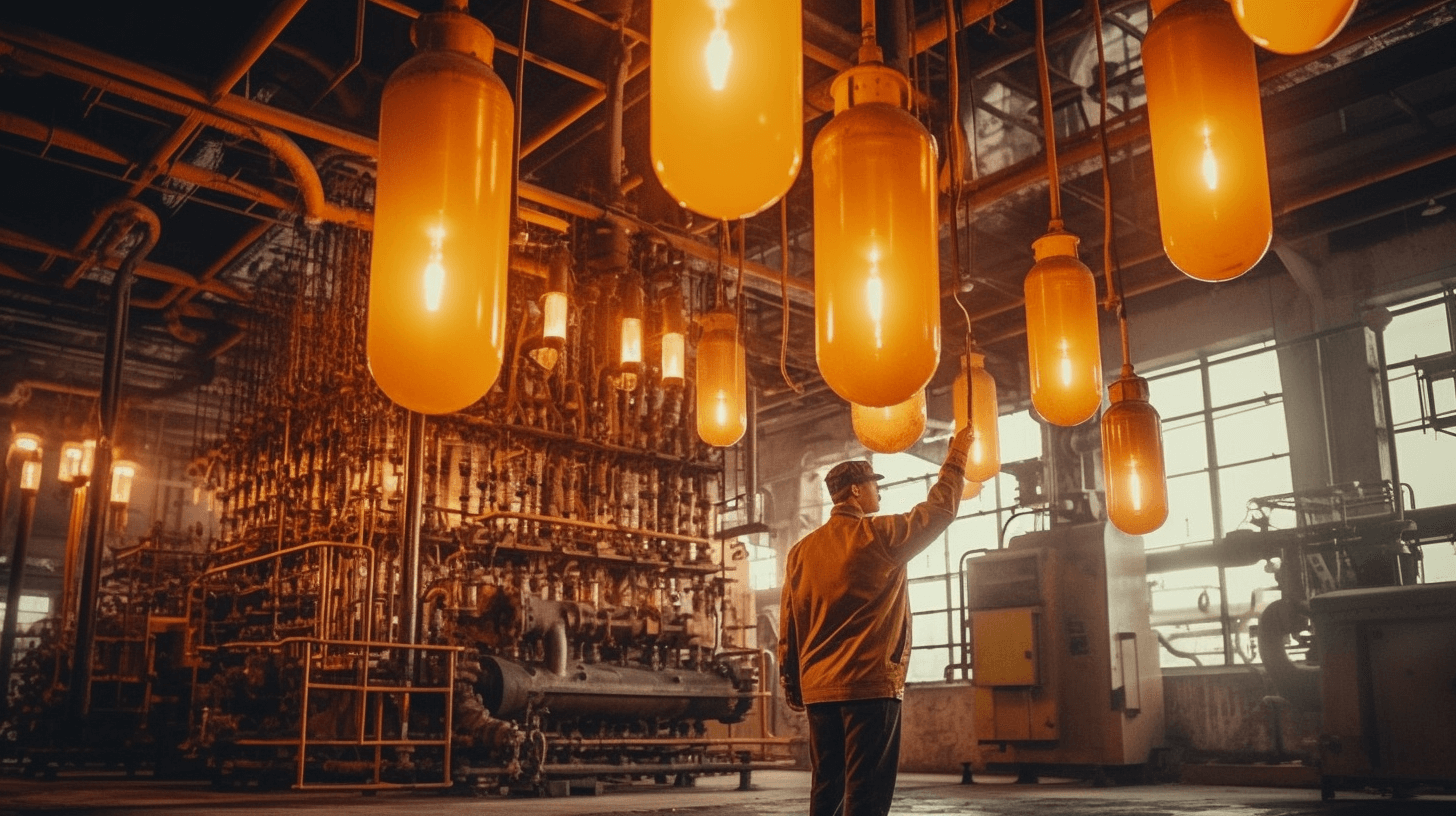AI-Generated Content & the Copyright Implications
The time is ten past tomorrow and there's some big news that just dropped from the US Copyright Office, that’s going to impact all of us in the world of AI.
I've been reviewing this news over the past couple of days, and trust me, it's huge. We all need to be aware of what's going on.
I'm talking about the copyright implications of using AI-generated content in your business. You don't want to be left behind or caught off guard, so let's go over it together, and I'll summarise the news for you step by step…
The AI revolution and its implications
We’re all watching it. AI is everywhere. It's changing the game in industries left and right, and one of the first emerging superpowers it has is to transform the way we create and use marketing and sales content.
You've no doubt seen it already—whether it's a super realistic image or a news article written by a machine, AI is getting crazily good at mimicking human creativity. The thing is, this content is generated using algorithms, data, and machine learning.
And with great power comes great responsibility. Which brings us to the big question: who owns the rights to content created by these algorithms, data, and machine learning?
The truth is that right now, AI copyright is a murky pool with lots of unknowns that we’re wading through. No-one knows exactly what is right and wrong.
That's why we need to get a handle (yes, even us as New Zealand business leaders) on the new copyright implications released three days ago by the US Copyright Office for using AI generated content in professional settings.
The current copyright landscape: Who owns the rights?
This is where things get a bit tricky. Traditionally, copyright laws have been designed to protect human creators, giving them exclusive rights to their work. But with AI-generated content, there's no human creator in the traditional sense. So, who gets the rights?
Well, as mentioned above, the current landscape is a grey area at best, made more grey by the US Copyright Office announcing that “your computer is not an author”.
So, when AI tech (e.g. ChatGPT) receives a prompt from a human and generates content, the technology – not the human – determines the authorship. Human users don't have ultimate creative control, therefore the prompts work more like instructions to a commissioned artist.
This means if a work’s traditional elements of authorship come from a machine, it won't be registered as copyrighted. And if AI-generated content isn't protected by copyright, it can be freely used, sold, or distributed without permission from its creator.
Even if you don't rely on AI to create content from scratch, using it to touch up a project raises ownership questions.
As AI evolves, lawsuits have emerged over content created with AI assistance. One such case involves Kris Kashtanova, author of "Zarya of the Dawn," fighting for full copyright for her book containing images created with AI software from Midjourney. The Copyright Office agreed to reissue the registration, on provision of removing images not made by humans.
While most ongoing lawsuits involve visual artists, I won’t be surprised if marketers using AI to support creative projects might soon face copyright battles.
As it stands, even using AI software to create a blog outline or 1st draft of an article likely makes the content "non-human" in the eyes of the US government.
Outside of the US, some countries currently lean towards giving the rights to the person who created the AI, while others argue that AI-generated content shouldn't be protected by copyright at all.
Bottom line? There's no one-size-fits-all answer, and it's important to stay informed about the laws in New Zealand (or your country, wherever you're reading this).
.png?width=1456&height=816&name=Icecream%20(1).png) Hands off, that's my giant ice cream. Or is it? Generated by Midjourney.
Hands off, that's my giant ice cream. Or is it? Generated by Midjourney.
Practical advice for business leaders: Navigating the AI copyright landscape
By now, you’re probably in the same headspace I was 48 hours ago…. Just beginning to get that gnawing feeling that this could become something HUGE for us all to consider as we guide our businesses.
As it stands, I am genuinely concerned, and also a little confused about how this will all play out.
So, the best I can do is offer some gentle guidance to help you navigate the current landscape of copyrights for AI-generated content. (I am not a lawyer and nothing I say in this article should be construed as legal advice.)
-
Stay informed: Seriously, knowledge is power, and this is a theme I keep coming back to continually in most of my articles. Keep up-to-date with the copyright laws in your country, and stay on top of any changes that might affect your business.
-
Be prepared for change: The copyright landscape is evolving, and it's only a matter of time before we see new laws and regulations. Stay flexible and be ready to adapt your business practices as the legal environment shifts.
Embracing the future of AI-generated content
Look, AI-generated content is here to stay, and it's only going to keep getting better, and more embedded across our business systems.
As New Zealand business leaders, we've got to embrace the future, but we also need to be aware of the challenges and responsibilities that come with it. That means staying informed, using AI legally, and being prepared to navigate the ever-changing copyright landscape.
Remember, we're all in this together.
By understanding the copyright implications of AI-generated content and making smart, informed decisions, we can not only protect our businesses but also help shape the future of AI in ways that are fair, legal, and beneficial for everyone.
So, go out there and make the most of AI-generated content, but do it with your eyes wide open. Stay informed, and always be ready to adapt.





%20risks%20and%20concerns%20of%20AI%20that%20I%20want%20everyone%20to%20know%20about.png)
